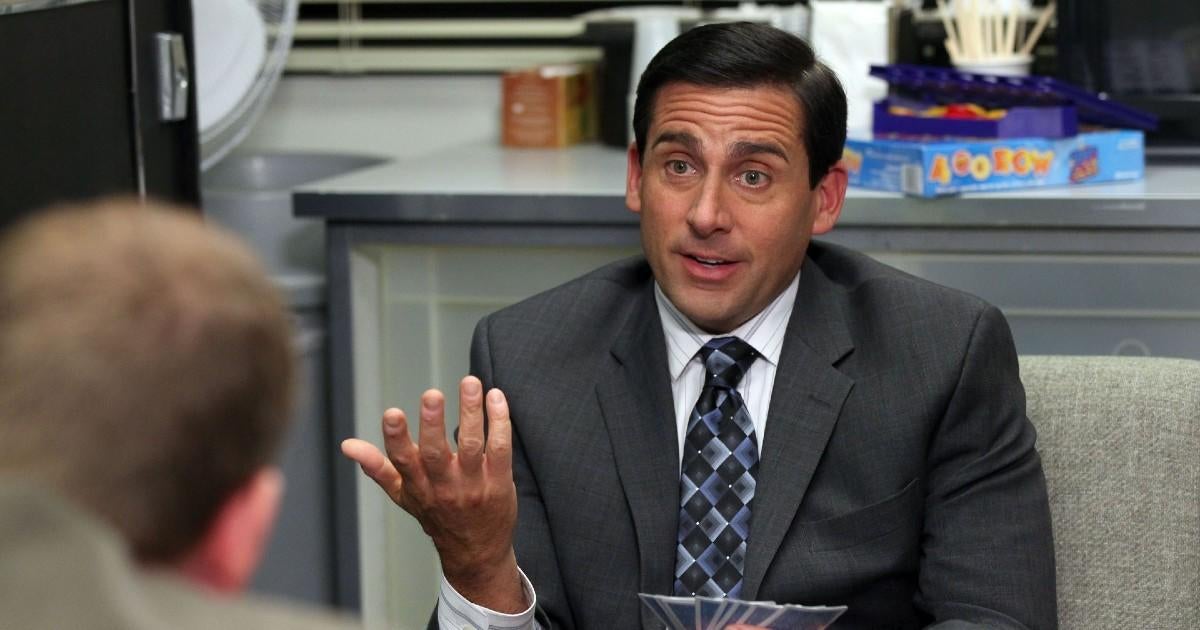Ginny Almost Rescues Ginny & Georgia Season 2 From Itself
Although widely cited as a country-fried The Gilmore Girls with a dash of murder, Ginny and Georgia only wishes it were so straightforward. There are moments of real excellence in the teen drama’s sophomore season, out now on Netflix; in particular, Antonia Gentry plays the titular Ginny with a well-balanced fusion of adolescent self-absorption and raw pathos. As her understanding of her mother’s crimes crystallizes early in season 2, her own mental health deteriorates, and the self-harm that received only a cursory introduction in season 1 is explored with much more nuance and insight here. But the show’s efforts to resonate are all too often side-lined in favor of bad voiceover, half-baked love quadrangles, nonsensical criminal hijinks, and a fundamental imbalance of its titular characters.
The season 2 finale serves as a perfect case study for this problem. “I had to change a lot,” Brianne Howey’s Georgia says in the episode’s opening minutes, via her signature über-twangy narration. “I’ve gotten good at it.” But Georgia has spent the bulk of season 2 proving that, actually, she’s not very good at it at all. She’s continually justifying her uglier actions, even when they put her children in danger. She’s continually keeping secrets, even when the lack of transparency only adds to her long list of troubles. Worst of all, she continually centers herself and her own need to identify as a “good mom,” even when her children are begging to be acknowledged and understood.
“You guys are fine, right? Not emotionally scarred beyond repair?” she pleads with these kids, hours after Ginny and Austin (Diesel La Torraca) witness Austin’s biological father, Gil (Aaron Ashmore), abusing Georgia in the kitchen. Austin—who’s clearly picked up some violent instincts from his mother—then shoots his dad in the arm.
We later learn, via flashbacks, that Georgia herself once tried to pull a gun on Gil, but he called her bluff and knocked the pistol out of her clenched fist. So she embezzled money from his company and pinned the crime on him, an action she justified since a) He’d become a danger to her family, and b) Gil was already embezzling money, and just hadn’t withdrawn enough cash to get himself caught. The $100,000 check was enough to get Georgia and Ginny out of hell, and to throw Gil in jail long enough for Georgia to almost forget about him.
Problem is, old enemies have a way of popping back up in Netflix dramas. Now, not only does Ginny have her mom’s abusive ex-boyfriend to worry about, but she’s also reeling from a recent break-up with Marcus (Felix Mallard), whose severe depressive episode she’s yet to fully comprehend. But wait, there’s more: Ginny doesn’t know that no small part of her break-up is thanks to Georgia, who, earlier in the season, made Marcus promise her he “wouldn’t hold [Ginny] back.” Mother and boyfriend share a smoke in the garage halfway through the season finale, during which Georgia admits, “I was a little harsh with you. I’m sorry. You did a lot for my daughter.” To which Marcus replies, “You don’t need to worry. I won’t tell anyone your secret,” and then slides a finger across his neck. Georgia’s face drains of color as she realizes Ginny told him she killed her ex-husband.
Meanwhile, after Ginny’s friends, father, and mother attempt to ease her heartsickness with offers of college extension classes and pre-gaming, Georgia snuggles with her daughter and brings up—out of nowhere—the thought of Lake Powell. What a pretty place to live, right? It takes Ginny a few more scenes to piece together what Georgia was getting at. Her mother hasn’t changed at all; she wants to run again.
So Ginny phones The Mount, where Georgia and her fiancé, Mayor Paul Randolph (Scott Porter), had planned to get married. Sure enough, Georgia’s already broken the contract and called the wedding off. (I shudder to think of the resulting bill, but no time for that in teen drama-ville!)
Ginny confronts her mother once Georgia returns from her smoke break with Marcus, but Georgia insists that moving to Lake Powell is an effort to ensure Paul’s safety. “This isn’t about protecting Paul,” Ginny retorts. “This is about protecting Georgia.” Finally, Georgia cracks—a little—and spills her true fear: “I’m a damaged, unlovable, trailer-park teen mom murderer. I don’t belong here.”
Thanks to the intervention of therapy, Ginny recommends that Georgia lay it all out for Paul and see what’s the worst that can happen. (Perhaps that he has her arrested for stealing funds from his office in season 1, but I’m just brainstorming.) And of course she shouldn’t tell him about killing her ex-husband, Kenny. That would be a step too far. Reluctantly, Georgia agrees, and her subsequent word-vomit at Paul’s feet sends him storming out of the house … and straight to his lawyer, whom he sics on Gil for harassment and custody of Austin. He insists he’s still furious with Georgia for keeping so many secrets, but he agrees to follow through on their wedding.
Seemingly moments later, Georgia and Ginny are riding to City Hall in a carriage drawn by a horse named Milkshake. Most of the wedding guests are there waiting, except for Georgia’s co-worker and friend, Nick, who’s just found out that his supposed boyfriend, Jesse, is actually a private investigator named Gabriel Cordova, hired to poke around in Georgia’s history. This realization, of course, comes after Nick’s already supplied the juicy tidbit that will finally give Gabriel his winning hand: Georgia was present a few nights ago, when her neighbor, Cynthia Fuller, discovered her sick husband was flatlining. In fact, Georgia was there in the room with him when the monitor went haywire. A coincidence? Gabriel thinks not.
Back in City Hall, Georgia floats to the altar in a confection of exploding periwinkle tulle, and she dances under the twinkling fairy lights with her new husband, who this time can do nothing as Gabriel and the police interrupt their first dance to shackle Georgia in handcuffs. Lo and behold, she’s under arrest for the murder of Tom Fuller. Why? Gabriel must have taken Nick’s insider info and ran with it, convincing the police that Georgia’s presence at the Fuller household when Tom died was too suspicious not to investigate further.
As the guests pour out of the building to watch the cops toss Georgia into their cruiser, Ginny grips her little brother’s shoulders, and he confides a gut-wrenching secret. “I didn’t tell anyone,” Austin reveals, as he rips away from Ginny’s clutches and races after his mom.
See, Austin watched it all happen. During a game of hide-and-seek with Cynthia’s son, he hid in a closet in Tom’s hospice room, from which he watched Georgia waltz in and smother Cynthia’s husband with a pillow. Georgia’s child watched her kill a man. Even if she claims it was an act of mercy, a show of friendship to the long-suffering Cynthia—who was tired of watching her husband waste away in his vegetative state—Austin has no way of understanding that. And even if he did, Austin would know a different truth: Ending Tom’s life was not Georgia’s decision to make. Regardless of the intention, it was a crime, and one Georgia made without considering the impacts on those around her. As the cop car pulls away from City Hall, Ginny can only watch and take heaving breaths as she realizes she, once again, will be forced to deal with what her mother has wrought.
Georgia’s unintended impact on Ginny is one of season 2’s most poignant recurring themes. In fact, the trauma passed between them might be the single most interesting issue Ginny & Georgia has to offer, and when the camera zooms in on that dynamic—as it does in some well-written therapy scenes earlier this season—the show finally balances the scales. Only in these scenes does the relationship between mother and daughter feel less like caricature and more like something snatched from a slice of life, a lá the oft-referenced Gilmore Girls. But the weight of this dynamic falls too often on Ginny, and by extension on Gentry, whose most intriguing work is overshadowed by the show’s miscalculated attempts at humor and high stakes. In between her psuedo-Southern platitudes and oversimplifications, Georgia bats her eyelashes and brushes aside Ginny’s attempts at real reckoning, as in an exchange when she attempts to plant alcohol and porn in Ginny’s teacher’s desk midway through season 2.
“You can’t go around doing whatever you want all the time,” Ginny tells her mother.
“I would do anything for you. You know that,” Georgia says.
“That’s horrible,” Ginny replies, in one of the season’s more intelligent line readings. “That’s a horrible thing to put on me.”
Ginny—and Gentry—do their best to keep the show on track, to steer the titular mother and daughter toward mutual understanding. Georgia did what she felt she must, in order to escape an abusive childhood and adolescence; Ginny nevertheless has to deal with the twisted repercussions of her actions. The difference is that Ginny’s character is given the time and space for evaluation and healing. Despite Howey’s best efforts, Georgia’s self-analysis only barely skims the surface. “I don’t belong here” is about as earnest as she’s allowed to get.
Ginny & Georgia season 2 is undeniably better than season 1: It’s smarter and more substantive, plus it’s abandoned some, though not all, of the Gen Z buzzword roulette that got its early-episode writers in trouble last season. But too many voiceover clichés (“Betrayal leaves a metallic taste”) and illogical twists (How, exactly, does Gabriel plan to prove Georgia killed Tom?) contribute to an unbalanced reliance on Ginny’s maturity as a character (and Gentry’s maturity as an actress). The result is an uneven, if enjoyable, sophomore season, one with a lot more unpacking to do if it hopes to keep Ginny and Georgia together for long.

Associate Editor
Lauren Puckett-Pope is an associate editor at ELLE, where she covers film, TV, books and fashion.







